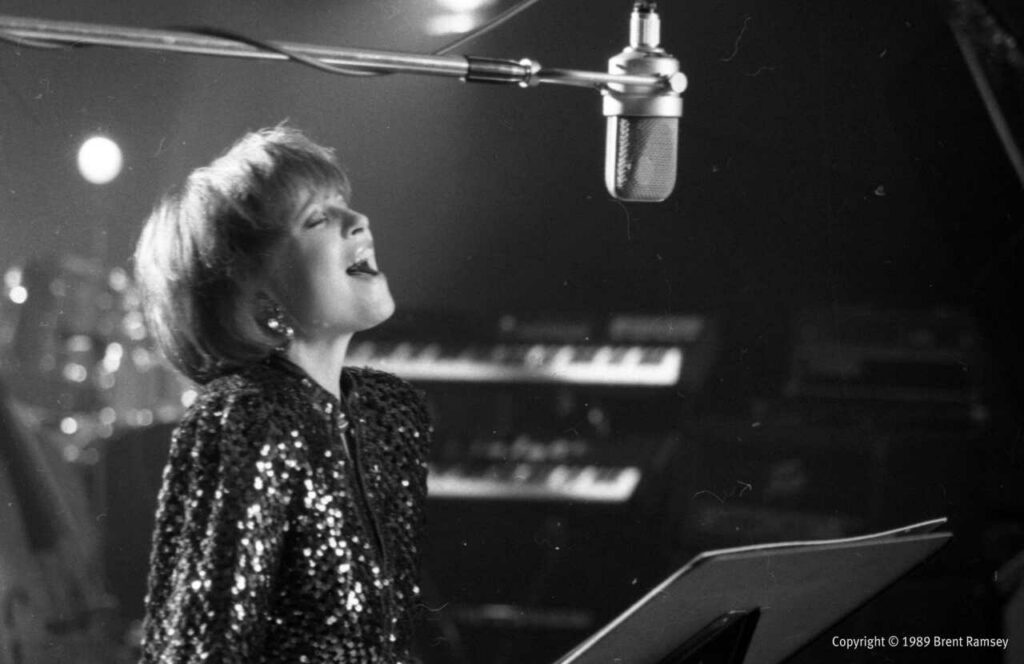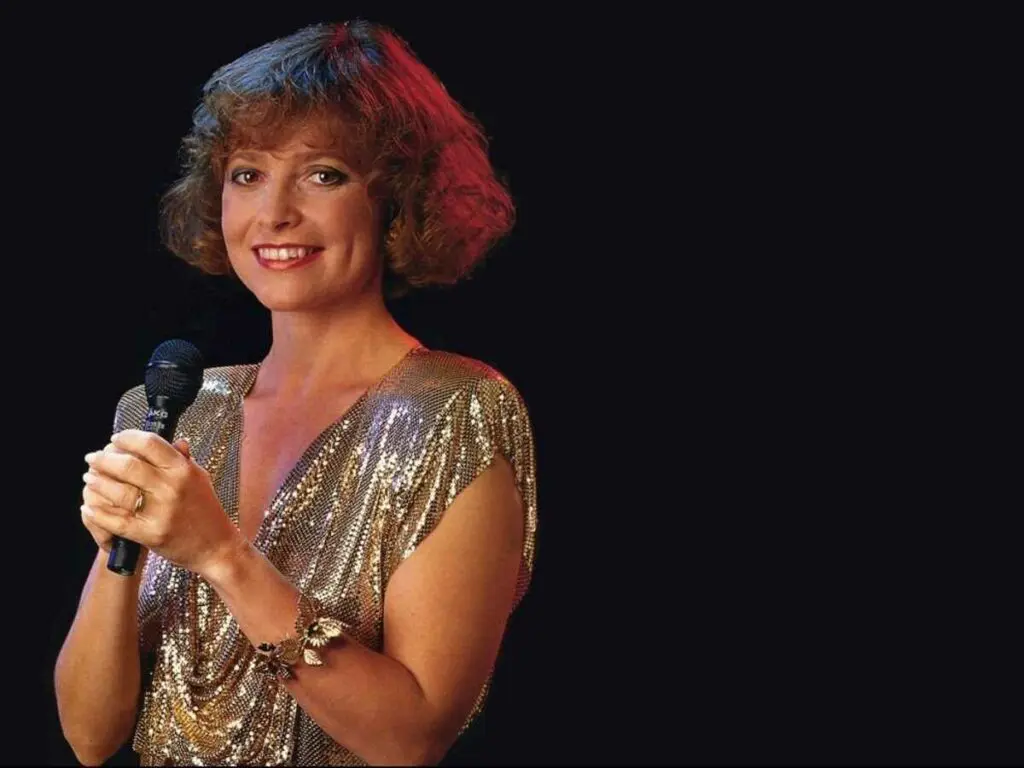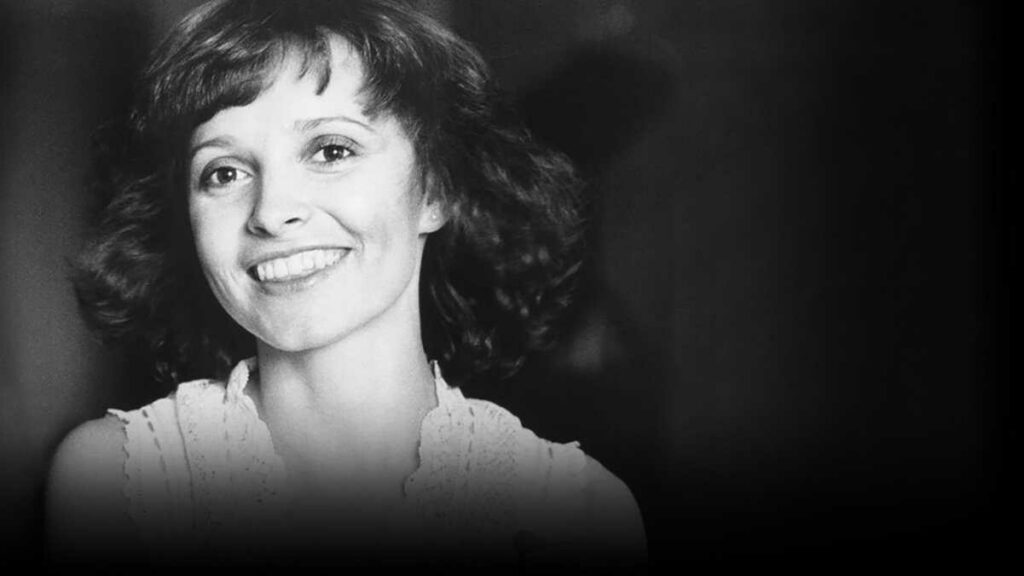Kvitka Cisyk is an American singer from Ukraine, the most popular jingle performer for commercials in the United States. And also a performer of blues and old Ukrainian folk songs and romances. She had a rare and romantic name - Kvitka. And also a unique voice that is difficult to confuse with any other.
Not strong, but insightful, a little poignant and weightless, as if woven from the finest notes and feelings, from sincerity, sadness and heavenly joy. Once heard, it sinks deep into the soul in order to awaken the innermost strings there, which will never be silent. Only angels sing like that, who descend to earth for a while. Unfortunately, their time on earth is often very limited. The same thing happened with Kvitka.
Childhood and youth Kvitka Cisyk
Kvitka Cisyk for many of her compatriots was the embodiment of the American dream. The daughter of a post-war emigrant from Lviv, a professional violinist, in the past - concertmaster of the Lviv Opera, Volodymyr Tsisyk. She grew up in an atmosphere of music and art since childhood. From the age of 4, the father began to teach his daughters Kvitka and Maria to play the violin and piano. Maria later became a famous pianist. She was even the director of the San Francisco Conservatory, and taught master classes at the Carnegie Hall concert hall.
Kvitka, in addition to playing the violin, was seriously fond of ballet and successfully performed Ukrainian folk songs. She was in the choir from an early age.
Kvitka graduated from the New York City Conservatory, where she mastered vocal technique and masterfully honed a rare musical gift - the coloratura soprano. This performance was immediately noticed by the American businessmen of show business. They invited Kvitka Cisyk (or Casey, as the Americans called her) as a backing vocalist to the stars of the first magnitude.

The fate of the Kvitka Cisyk family
After World War II, the American continent welcomed a young Ukrainian family with their little daughter Maria. She was then 3 years old. The parents of the future singer with many Ukrainian immigrants were looking for a new home. A few years earlier, the young couple lived a camp life in the German city of Bayreuth. There, in 1945, a daughter, Maria, was born. When the camps were closed in 1949, they did not return to Ukraine, but went to the West.
The mother of Kvitka Cisyk, Ivanna, was a native Lviv woman and was from a very famous family. Before leaving for Germany, the young couple Cisyk lived in the house of Ivanna's parents until 1944. Father Volodymyr was from Kolomyyshchyna (Lviv region), which was famous for its songs and arts and crafts. His small homeland (the village of Leski), where his parents, six brothers and a sister lived, in 1939 became the object of purges from "enemies of the people".
The first language is Ukrainian, the second is the language of music
The first language for Kvitka, despite the fact that she was already born in America, was Ukrainian. And as soon as she mastered it, the father decided to teach his daughter a "second language" - music. For her impeccable studies, Kvitka received a scholarship in the violin class at New York University. But she studied there for only a year, because her conscious life she dreamed of singing, not playing. Since childhood, the girl sang in the church choir, was a soloist in the school choir. To the accompaniment of her parental violin, she performed complex musical parts at home.
And sister Maria played the piano. Possessing a magical and rare voice (coloratura soprano), she saw herself as an opera singer. Therefore, she became a scholarship holder of the New York Conservatory of Music (Mannes School of Music). Under the guidance of music professor Sebastian Engelberg, Kvitka Cisyk studied opera performance. Under this stage name, the talented performer became popular in the musical life of America.
The first musical successes of the Ukrainian emigrant
The 1970s for Casey were a time of ups and downs and a brilliant career. She became popular as a soloist and backing vocalist. And also as a digging performer for famous companies and a highly paid singer.
Casey created the image of corporations: Coca Cola, American Airlines, Sears, Safeway, Starburst, ABC, NBC, CBS. And from the beginning of the 1980s, she sang for Ford Motors for 18 years. And every American could hear the unique composition performed by her Have You Drive a Ford Lately? or the famous You Light Up My Life soundtrack from the movie of the same name. He won an Oscar and made a lot of noise in show business. Americans calculated that Casey's voice was listened to by more than 22 billion people.

Everything contributed to her success - perfect vocals, the ability to sing in different genres and styles, highly qualified technical training. The singer began studying opera singing and dreamed of becoming an opera singer, but she became interested in studio vocals. Soon, well-known jazz, pop and rock stars began to invite her to record discs. It's Michael Franks, Bob James, David Sanborn, Michael Bolton, Roberta Flake, Linda Rondstad, Carly Simon, Carol King, Dave Valentine, Mikio Masuo. And also Quincy Jones, who produced Michael Jackson and created arrangements for his hits. The latter began by singing in the choir, and next to him stood and sang Casey.
Honored Kvitka Cisyk not received an Oscar
In 1977, during the filming of You Light Up My Life, George Brooks wrote a song of the same name for the main character. She was supposed to sing it in one scene. Since the lead actress was not famous for her voice, George Brooks suggested Casey do it. She played the role of her friend in the film. Casey sang and did it flawlessly. On the eve of the release of the film on the screens, the question arose under whose label the album should be released. And also who has more rights: the studio where the songs were recorded, or the film studio that made the film. While legal disputes were going on, singer Pat Boone bought the rights to perform the soundtrack from the film. And gave it to his daughter Debbie Boone. She recorded You Light Up My Life with other unknown songs, copying Casey's performance style.
At first, the song did not attract attention. But a week later she became a hit and held on to leading positions in the charts for 10 weeks. This led to the huge popularity of Debbie Boone and the director of the film. The wedding ballad from the film was nominated for an Oscar. Almost no one knew about Casey's version of the song in the film. Because the movie hasn't been released yet. When the soundtrack CD was released, Casey's name was not on it. The album was simply titled "Original Songs from the Motion Picture". It was about stealing the copyright for the song. But Casey did not want to continue the dispute in court.
After that, Debbie Boone had a few more minor ups and downs. She failed to make the top 40. And she remained famous only thanks to the song from the movie. Today, this scandalous composition is in dozens of interpretations, and it is performed by famous singers. It was first sung by Casey in 1977.
Kvitka Cisyk: Songs from Ukraine
Despite being busy, lucrative contracts with well-known companies, Casey took up forgotten Ukrainian songs. But it turns out that almost nothing is known about the Ukrainian song outside the diaspora. They lack modern arrangement, perfect technical processing. And Kvitka Cisyk decided to make a musical selection, giving a new sound to distant, but so dear melodies. As she later admitted in an interview with Alexander Gornostai, this was the desire of her life. And she also wanted to be heard in her father's homeland (namely in Lviv), and not only in America. To make her dream come true, she asked her family and loved ones for help. Namely, sister Maria, who chose the repertoire, and also performed piano parts.
Also a mother who corrected the forgotten Ukrainian pronunciation. And husband Jack Kortner, composer and arranger, thanks to whom the songs sounded great. Also, the singer did not spare money for the famous US instrumental orchestra. Casey reincarnated as Kvitka and sang sincerely and sincerely, like a real Ukrainian. Kvitka translated every word to Jack Kortner so that he could better and more accurately convey the unique melos of his native song and preserve its authenticity. In 1980, the artist dedicated the first Ukrainian-language album under the same name "Kvitka" to her father, Volodymyr Tsisyk.
Awards Kvitka Cisyk
Kvitka Cisyk, fascinated by the depth of her native rhythm and melody, planned to release a second and third album. She did not know that the songs performed by her in 1988 will receive 4 awards at the festival in Edmonton. But, unfortunately, the singer was unable to attend the award ceremony for health reasons. In 1990, her albums were nominated for a Grammy Award in the contemporary folk category.
The rapid pace of life and the obligation to fulfill contracts "postponed" the implementation of the recording of the second album. In addition, many changes have taken place in the life of the singer. She divorced Jack Kortner and after a short time married Edward Rakovich. Thanks to well-deserved fees and agreements with well-known companies, the family received income. They allowed to hold a music studio. And also to have a house in one of the prestigious districts of the city - Central Park. Madonna, George Benson, Sean Lennon, Frank Sinatra and others recorded songs in this studio. The couple had a son, who was named after his parents, Edward-Vladimir.
In 1992 Alexander Gornostai came to New York and recorded a video interview of Kvitka Cisyk in Ukrainian. He presented in Vancouver the film “Ukraine: land and people” (to the centenary of emigration), filmed for television in Canada. Fragments of the interview were included in the documentary “Kvitka. Voice in a single copy. It was filmed by the Inter TV channel for the singer's 60th birthday.
Dreams realized and unfulfilled
It wasn't until 1989 that the dream of recording a second disc of songs became a reality. This is how the legendary album “Two Colors” appeared based on the song of the same name to the words of Dmitry Pavlychko and the music of A. Bilash. On the packaging was the inscription: "This collection of songs is the dream of my Ukrainian soul to weave bright threads into a torn canvas, which depicts the fate of my people." The album contained a soulful song "Do you hear, my brother ...". It became a symbol of emigrants, and there were also the words: "... you cannot choose only your homeland." Recording albums, as Kvitka's husband Edward Rakovich later admitted in an interview, was a project of love, love for Ukraine.
Between the first and second albums, Kvitka and her mother came to Ukraine for the only time. Little is known about this visit, and it was limited to living in private homes. No concerts and creative meetings. It was later that sister Maria came to Ukraine with piano performances. When Kvitka was at home, no one heard her voice due to the isolation of Ukrainian culture and political censorship. Only after the release of the second album "Two Colors" did all the caring people learn about the singer's talent. A little later, she began to be invited to Ukraine with concerts. And Kvitka could not come a second time. Perhaps due to employment or illness.

Most of the songs are well-known in the performance of other singers. But no one "covered" her magical, exciting timbre of voice, graceful soprano and powerful energy of the song. The singer knew about the Ukrainian song and felt the Ukrainian soul better than ethnic residents. This is one of the phenomena of Kvitka. Her talent was fascinated in Ukraine, they wanted to reach her level. The interpretation of the folk song became a model for other performers. Nazariy Yaremchuk recalled this with delight during an interview with Ukrainian radio in Winnipeg shortly before his death.
Kvitka Cisyk: Strong American from Ukraine
Kvitka Cisyk planned to visit Ukraine at least once more, in particular Lviv. This is the city where the parents lived, as well as the Cisyk family nest - the village of Leski in the Kolomyisk region. I wanted to hear my native language in the historical homeland of my ancestors, to give Ukrainian concerts. And also record an album with lullabies for her son, whom she taught Ukrainian. But things turned out differently. On March 29, 4 days before her 45th birthday, the singer's death was announced on the radio. Fatally, but Kvitka died from the same disease as her mother - breast cancer. And after 5 years, sister Maria died of this disease.
When Kvitka was diagnosed, she was told she would only live a few months. But, fortunately for the singer, she lived for another seven long years. Some time before her death, her husband Ed Rakovich sent a message to Kvitka's relatives and friends asking them to write to her, support her in difficult times. This request was also made public by a Ukrainian radio program in Winnipeg. And many listeners sent letters, postcards to the artist and to the address of the radio program. When it became known about the death of Kvitka Cisyk, Bogdana Bashuk (host of the Ukrainian radio program in Winnipeg) dedicated a program to her. Perhaps, ironically for the singer, the sad song "Cranes" sounded on the air. Since then, this musical composition has always been performed when Kvitka's memory is honored. The song has become a symbol not only of Ukrainian emigrants, but also of mourning for the famous artist.
Two years ago in Lviv, a memorial plaque dedicated to Kvitka Cisyk was opened on the facade along Gluboka Street, 8. The commemorative plaque says: “Until 1944, a famous Lviv family lived in this house, in which the famous American singer of Ukrainian origin Kvitka Cisyk was born in 1953.”
Memorial Museum of Kvitka Cisyk
Recently, one of the streets of Lviv was named after the singer and a small memorial museum was opened. In the future, on Kvitki Cisyk Street in Lviv, they plan to open a monument to the singer in a complex with a park. It will serve as a recreation area and venue for concerts in her honor. In 2008, the first evening in memory of the singer took place in Kyiv (at the initiative of Alex Gutmacher). Later, the first International Competition of Ukrainian Romance named after Kvitka Cisyk took place in Lviv.



